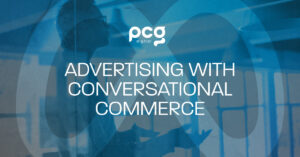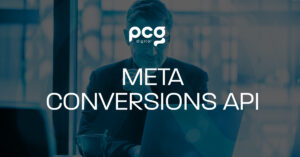Google recommendations fall into two categories, suggestions in the interface and endorsed campaigns and tactics from Google strategists or partners.
Google has become a play-at-your-own-risk platform. If you are running campaigns internally without an agency, be careful when applying Google’s tactics. The comprehensive list below will outline what to watch for within Google Ads, what campaigns to avoid, and the frame of mind you should have when reading Google recommendation emails and talking to Google employees.
Google Ads Interface Recommendations:
The recommendations tab is located within the Google Ads interface. The point of this tab is to make life easier for advertisers by suggesting changes that will impact performance. Below are some examples of categories of suggestions you might see in your account.
Automated Bidding
This is a classic example of a recommendation that should not be automatically applied without in-depth knowledge of business goals. Many times, Google will suggest changing bid strategies to get more conversions, but if your business uses hard conversions vs soft conversions, this is not the optimal solution.
Ad Creative
Google will write ads for you with the click of a button. These add variations to your existing text ads that are powered by artificial intelligence. The ads suggestion does not line up with brand standards in all cases. Over time Google has improved and can be trusted more with ads but this is not a set and forget recommendation.
Keyword Suggestions
There are essentially 9 different keyword recommendations that can be applied from the Google Ads interface. This should be done with extreme caution. Are you simply trying to increase traffic or are you trying to run a more efficient account? The main pitfall of these recommendations is that you can easily change keywords with one click and start bringing in irrelevant traffic and wasting your ad spend.
Audience Reach
For the most part, adding audiences based on recommendation in the interface is safe. Where you want to be careful is when Google suggests expanding audiences. In some situations, search partners can push results. If your budget is restricted, however, this undoubtedly isn’t the best approach even if it is inexpensive traffic.
Lastly, it’s important to spend some time covering Google recommendations that are not in the interface.
These suggestions can be found in Google webinars from Google employees and in promotional emails from Google. These are shared on LinkedIn and even promoted without consideration from some agencies.
Back in the day it was awesome to get a call from Google! Google employees were the celebrities of the marketing world. Today, every interaction with a Google employee is a sales pitch. It is important to discern if what Google is proposing aligns to business goals.
To understand what’s happening, it is important to understand the relationship between Google and marketing agencies and the evolution of online marketing.
When it comes to small businesses, easier doesn’t mean better.
It simply means that Google has mastered a tool where you can create ads easily. For agencies we used to have genuine Google partners who would implement changes on our behalf in accounts, help us troubleshoot technical issues and offer support to our clients.
Google Partners are now pushing Smart Campaigns on agencies and small businesses. While Smart Campaigns might work in some circumstances, it can be argued that Smart Campaigns are a conflict of interest. If you chose Smart Campaigns, you are leaving all the control up to Google. If you simply implement the tactics that your Google rep or the Google promotional email recommended, you are losing your competitive edge. Smart Campaigns aren’t ideal for dealerships because most regular visits to the dealership are service visits. Therefore, when the smart campaigns are optimized for directions and store visits, we end up with service signals in a sales focused account.
When working in Google Ads, you need to be careful and skeptical. Set up your campaigns and look at every setting. Ask yourself about every radio button and every checkbox. This is what we do as Search Specialists. We are trained in the platform; we notice the small changes that happen in the interface, and we work in many small if/then situations. Lastly, we always read between the lines of the information we are given in emails and align that to the results we are seeing in our campaigns. The purpose of this post is not to bash Google or to by any means bite the hand that feeds us. Personally, we have grown and made our career in this industry and we’re still optimistic, but very careful about the changes we make and understand how the smallest changes can have some of the biggest impact in our campaigns.

Sarah Stemen


Drive Your Meta Advertising Strategy Using Conversational Commerce

